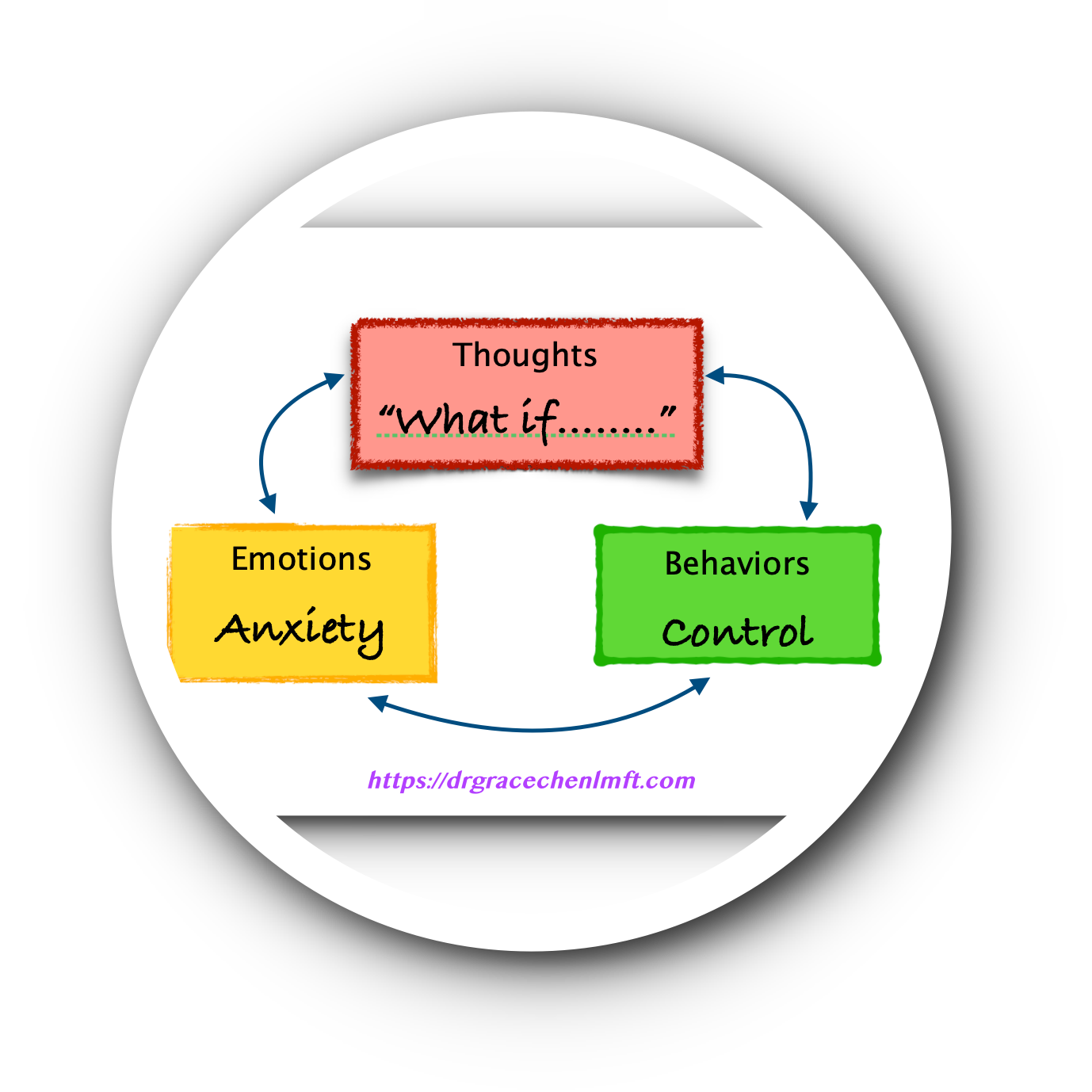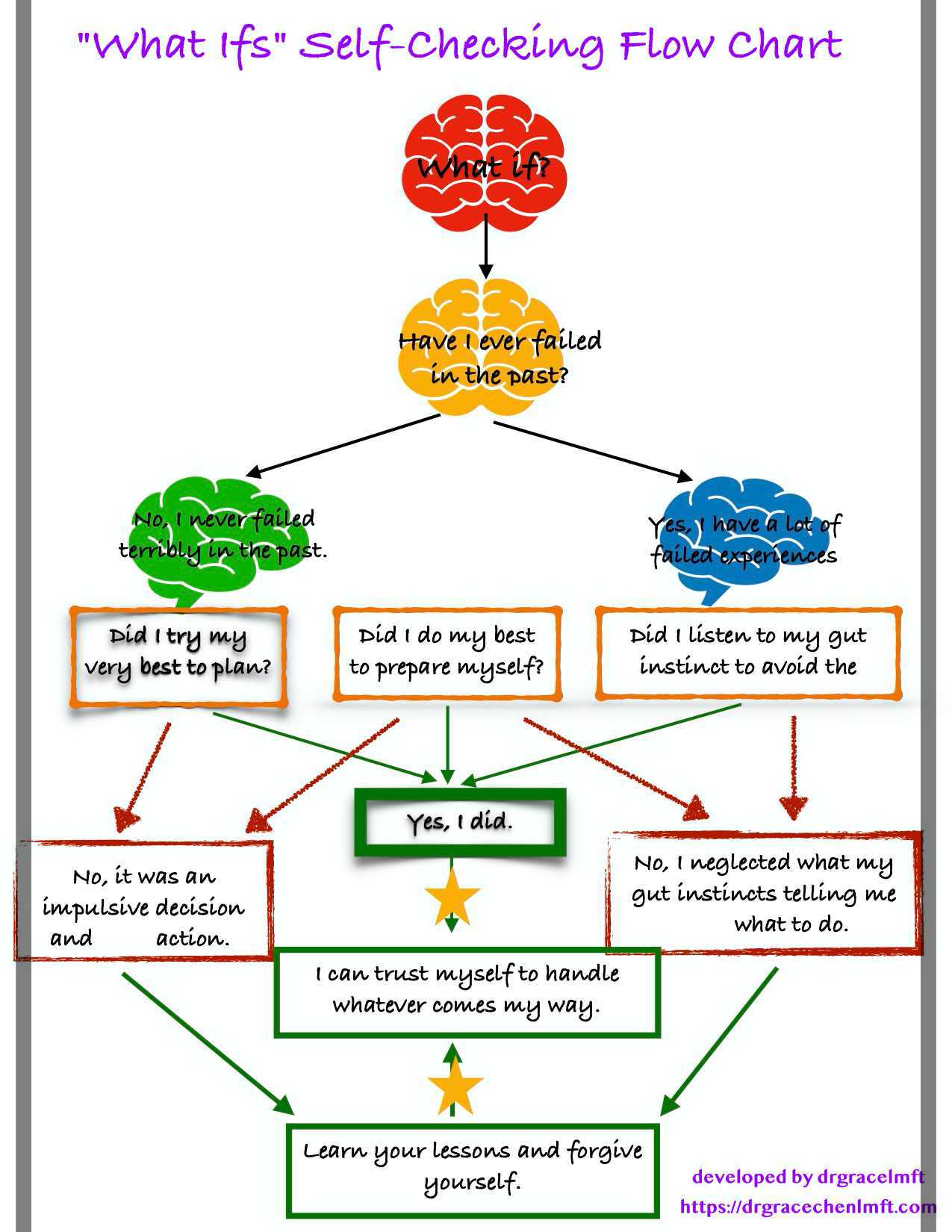(Curious about the Part I? Part I is here)
 Clients will sometimes tell me the previous experiences of not thinking enough “what-ifs,” and the traumatic feelings came with the not preparing enough, not planning enough, or not listening to their gut instincts.
Clients will sometimes tell me the previous experiences of not thinking enough “what-ifs,” and the traumatic feelings came with the not preparing enough, not planning enough, or not listening to their gut instincts.
Sometimes, clients will share thier childhood trauma that connected to anxiety. For example, they were punished for something that a child can’t see it coming. Or, because of the abuse in the family, they were trained to be observant to cope with the abuse.
Sometimes, clients will tell me that they have never had any failed experiences in the past, and therefore, it is even more anxiety-provoking to have to maintain that record.
My clients and I develop a treatment plan depending on where these “what-ifs” are coming. In any case, my end treatment goal is always this: We can’t predict the future, and there is no perfect planning. The bottom line is to trust that when “what-if” happens unexpectedly, can you believe yourself to handle the situation the best you can?
If you have planned, prepared, and calculated the risks, when the unexpected situation still happened, all it says is that “This unexpected stuation is beyond my control or experiences to predict or to prepare it from happening.” So, this situation is entirely out of your control. The probability for this to happen is probably too low to worry. For example, can anyone predict the COVID-19 pandemic to happen? Nope.
The treatment goal is for the clients to trust their judgment, to trust their decision-making process, and to trust their crisis intervention. To sum up: to trust yourself.
Why? Sadly, that’s all the control we have. As I grow older, I realized that a sense of control is a paradox idea. None of us have much control over what would happen and the outcome of any event. All we have is the control over what I will and can do for my own life at the current moment. Once this moment is gone, no one can go back but moving forward.
Only when I can trust myself in any given moment to do the best I can, I break the cycle of asking “what-ifs” about the future.
I know it sounds easy, but hard to do. Why? Our brain remembers the past impulsive decisions, unprepared actions, and unexpected disasters. More importantly, if you have grown up in a dysfunctional family, it becomes even harder to trust in yourself as your brain is so used to this idea: “no matter how hard I prepared, there is always an unexpected disaster.” However, there is no way you can prevent the abuse from happening because you were just a child. The power and control over the harm to a child are in the adult’s hand. As I often explained to my client: “your logical mind know you are an adult, and you are safe now, but your body and emotional mind still live in the past.”
What do you do about this? It’s more complicated than what I can write. I highly recommended seeking for therapy to “sync” your emotional and logical mind. However, the following simple flow chart might help you stay in the ground when you can’t get out of the “what-ifs.”
I would like to hear from you if my flow chart covers your experiences. Does this chart speak to you? If not, what are the self-evaluating “what-ifs” can be added to this chart?


One Response